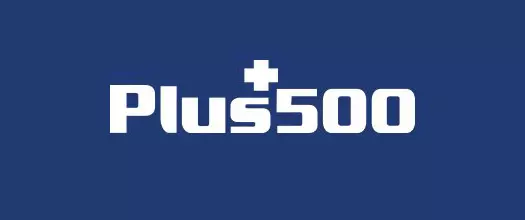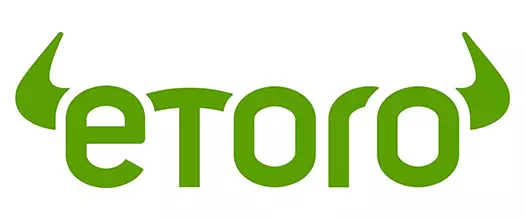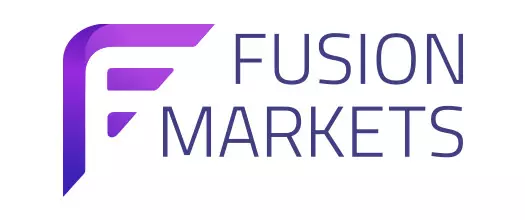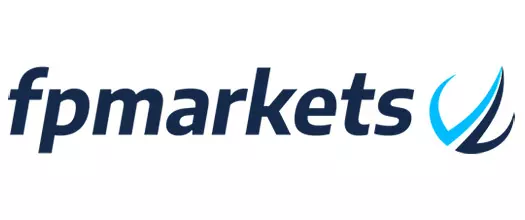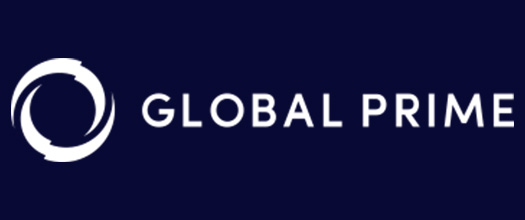- Jump to:
- Main features of the best Switzerland Forex brokers
- Forex Legislation
- Financial Regulators
- Payment Methods
- Trading Software
- Mobile Trading
- FAQ
Our team of expert traders tested many regulated and trustworthy forex brokers that accept traders from Switzerland and compiled a top list of the best. Each broker operating in Switzerland received a quality score based on several factors, including its Trustpilot rating, regulation, fees and commissions, available trading platforms, customer service, and more.
 Plus500 USThis content applies only to Plus500 US and clients from the United States. Trading futures involves the risk of loss.
Plus500 USThis content applies only to Plus500 US and clients from the United States. Trading futures involves the risk of loss. eToro61% of retail investor accounts lose money
eToro61% of retail investor accounts lose money Fusion Markets74-89% of retail's CFD accounts lose money
Fusion Markets74-89% of retail's CFD accounts lose money FP Markets73.85% of retail investor accounts lose money
FP Markets73.85% of retail investor accounts lose money Global Prime74-89% of retail CFD accounts lose money
Global Prime74-89% of retail CFD accounts lose money Pepperstone75.5% of retail investor accounts lose money
Pepperstone75.5% of retail investor accounts lose money
Below you can find a comprehensive comparison table of forex brokers for traders in Switzerland. We rank them based on several factors, including regulation, spreads and commissions, Trustpilot rating, trading instruments, trading platforms, and deposit and withdrawal methods.
Our team has thoroughly evaluated all brokers listed below using TradingPedia’s exclusive methodology.
Main features of the best Swiss forex brokers
- Brand
- Trading platforms
- Minimum deposit
- Regulations
- Trading instruments
- Spreads
- Leverage for Forex CFDs
- Leverage for Crypto CFDs
- Leverage for Indices CFDs
- Deposit methods
- Withdrawal Methods
- Commission per Lot
- Contact details
Thanks to its highly developed service and finance sectors, Switzerland has one of the most stable and competitive economies in the world. Known for its powerful banks, the country also has a strong industry and is among the leading nations for trade and technological innovation. The Swiss foreign exchange market is thriving, while the national currency, the franc, is one of the most traded currencies in the world.
Switzerland, officially the Swiss Confederation, is a fairly small country located primarily in the Alps, and it is home to more than 8.5 million people. In 2016, the federal state reported the highest average wealth per adult, at $561,900. But Swiss chocolate, the famous Swiss neutrality, secure banks and high living standards are not the most interesting things about this country. Officially, Switzerland has no capital city, yet it is home to four linguistic regions (German, Italian, French and Romansh). Switzerland is also the world’s leading watch exporter. Oddly, it exports more coffee than chocolate.
Despite its huge financial sector, reputable exchanges and good investment climate, there are not many Swiss-based forex brokers. The reason for this is a bit complicated and will be explained below.
Swiss forex legislation
To better understand the foreign exchange market in Switzerland – at least in terms of legislation and regulation – we need to take into consideration a few curious facts about this nation. It is not part of the European Union, the European Economic Area or the Eurozone (it is a member of the European Free Trade Association instead), but it participates in the Schengen Area and the European Single Market. This means that it does not fall under the jurisdiction of the European Securities and Markets Authority (ESMA), the main EU financial regulatory agency.
In 2018, ESMA introduced draconian measures to improve the protection of retail brokers. This included tiered leverage for different instruments (a maximum of 1:30 only for CFDs on major FX pairs) and a ban on the bonuses and other incentives offered by brokers for trading CFDs. In addition, the authority prohibited the marketing, distribution and sale of binary options.
Meanwhile, Swiss brokers do not face these tough restrictions, and the country was expected to benefit from the new EU-wide rules. Many brokers decided to close their EU-based offices and relocate to other jurisdictions. Switzerland, however, was not a preferred choice for them, mainly due to the current requirements to operate as a forex or CFD trading broker in the country.
The main pieces of legislation that control and regulate the financial markets in the country include the Banking Act, the Financial Institutions Act, and the Federal Act on Financial Market Infrastructures and Market Conduct in Securities and Derivatives Trading. To offer trading services in Switzerland, brokers need to obtain a banking licence. This status, however, involves complying with one of the strictest regulatory regimes in the financial sector.
In Switzerland, as well as around the world, banks need to meet the highest standards in terms of security, financial soundness, anti-money-laundering policies and so on. To receive a banking licence in the country, firms need to prove they are reliable, solvent, and serious organisations. They are required to have a minimum capital of CHF20 million. In comparison, the requirement for brokerage firms in most European jurisdictions is only €100,000. According to the local regulations, Swiss traders are protected up to CHF100,000.
In addition, brokers need to provide direct market access to their clients – price manipulation, platform tampering and other fraudulent tactics are strictly forbidden. The firms are considered to be liquidity providers since they are capable of absorbing most of the traded volumes. All this is, of course, extremely demanding, which is why only a handful of firms operate in the market.
Swiss financial regulators
The main financial regulator in Switzerland is the Financial Market Supervisory Authority (FINMA), a government agency that is institutionally, functionally and financially independent from the Federal Department of Finance. Based in Bern, the de facto capital of the country, it reports directly to the Swiss Parliament.
FINMA was established in 2007 after the adoption of the Federal Act on the Swiss Financial Market Supervisory Authority, which merged several institutions into one agency – the Federal Office of Private Insurance (FOPI), the Swiss Federal Banking Commission and the Anti-Money Laundering Control Authority. FINMA is the supervisory authority over banks, insurance companies, securities exchanges and other financial market infrastructures, fund management companies, collective investment schemes, mortgage issuance banks, financial intermediaries, and securities firms (formerly securities dealers).
It issues all three types of licences – banking licences, fintech licences and securities-firm licences. It also initiates investigations and has the authority to suspend and revoke licences. However, FINMA cannot issue penalties for any alleged misconduct – the Swiss Parliament has the right to do that. Overall, the agency is responsible for licensing, supervision, regulation and partial enforcement of the current rules, and its primary objective is to protect the interests of investors and creditors while ensuring the proper functioning of financial markets.
Switzerland forex payment methods
Although Switzerland is extremely economically advanced and technologically oriented, cash remains king when it comes to everyday payments. But since people now do more things online than ever, online payments have become very popular – credit and debit cards are Swiss citizens’ favourites, followed by digital wallets (on desktop and mobile). In addition, most people in the country have an account with at least one bank.
It is hardly a surprise, then, that most forex brokers available to Swiss traders offer these payment options. Clients can make deposits instantly into their trading accounts using a credit or debit card – Visa, Visa Electron, Mastercard and Maestro are usually offered. Typically, these cards have convenient limits (low minimum and high maximum limits), although this varies depending on the card-issuing institution. Withdrawals of funds take one to three working days, and fees are often covered by the brokers.
Another payment method supported by practically every Swiss broker is bank transfer. Most firms allow their clients to deposit or withdraw funds via SWIFT and SEPA transfers. They are considered secure and reliable ways to transfer money, but they are also slower than credit cards, for instance, and they come with higher fees.
One of the most popular payment methods among Swiss forex traders, however, is using digital wallets. Multiple e-wallets are supported in the country and by online brokers, including Skrill, Neteller and PayPal. Additionally, some brokerage firms also support payments in cryptocurrencies such as Bitcoin or Litecoin, although they are not very popular in Switzerland.
Popular trading software in Switzerland
Swiss traders use the same types of software to access the foreign exchange market as their peers from around the world. The choice of trading software is essential since every platform is designed for a particular type of trading and financial instruments – some are great for trading forex pairs, while others are mostly used for buying and selling stock. Of course, every type of software also comes with different functions, features and customisation options. Additionally, some platforms offer more complex tools that would benefit professional traders only.
Many other aspects should be taken into account when choosing a forex broker and trading system. The vast majority of online forex brokers offer their clients access to the same trading software. There are a handful of software platforms that are extremely popular and easy to use, which is why they have become an industry standard in the past few years. For instance, MetaTrader 4, a widely used platform for retail forex trading, is suitable for almost anyone interested in the foreign exchange market. It is, however, mostly oriented towards beginner-level traders and those who still need access to educational tools, copy-trading features, etc.
In fact, nearly everyone who trades on the forex market uses MT4, as it is also known – individually or paired with other types of software for analysis and back-testing. Another platform by the same developer, MetaTrader 5, provides access to more financial instruments, more advanced trading features and slightly improved performance. Both platforms, however, are available for desktop and laptop computers, as well as for iOS and Android devices. Still, there are many more software platforms that can be used for trading forex pairs.
One of them is cTrader, developed by Cyprus-based company Spotware Systems. The platform has a clean design and user interface and a wide range of technical indicators, as well as multiple features for professional trading. It offers fast execution, algorithmic trading, plenty of drawing tools, copy trading and many more features. In addition to these third-party platforms, there is also a wide variety of proprietary software designed for a specific forex broker. Such systems, of course, vary from one broker to the next and are usually quite different from each other.
Mobile trading in Switzerland
The explosion of mobile technologies in the past few years has made it possible for forex traders to access their accounts directly from their phones and tablets. Devices and subscription plans have become more affordable than ever, while brokers’ native apps have transformed into convenient, intuitive and well-performing applications that are just as functional as desktop-based trading platforms.
Just like in the rest of Europe, forex traders in Switzerland now prefer to open their accounts on the go. But while a couple of years ago they used mobile apps simply to stay up to date with economic news and market trends, they are now using their phones to actually buy and sell. They do not even need to have an account with a broker to download its trading application.
Once they install the app from the App Store or Google Play, they can sign up and opt for a demo or a live account. Novices in the forex market are, of course, advised always to start with a demo account, but to be able to trade with real money, they will need to register a live account and verify it. Once they do that, they will be able to benefit from all functionalities and features of the trading platform directly from their iOS or Android device.
